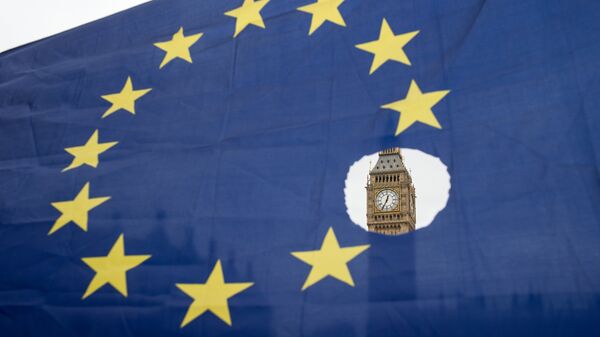Home Secretary Amber Rudd asked the Migration Advisory Committee (MAC), a public body that advises the government, to analyze the effects of migration on UK labor market and its impact on wider economy, as well as "how the UK’s immigration system should be aligned with a modern industrial strategy."
Government asks Migration Advisory Committee to look at the role of EU workers in the UK economy and society: https://t.co/GNoqbJYu0i pic.twitter.com/yoBGlZ99tB
— Home Office (@ukhomeoffice) July 27, 2017
Ms. Rudd has already confirmed in a statement that leaving the EU will allow Britain to take back control of its borders.
"Leaving the European Union gives us the opportunity to take control of immigration from the EU. We will ensure we continue to attract those who benefit us economically, socially and culturally."
However, some businesses and sectors are concerned that they may lose access to EU labour pool, which will damage their profits and have a detrimental effect on the country's economy overall.
Professor Jonathan Wadsworth at the London School of Economics (LSE) Center for Economic Performance told Sputnik that migrant workers in the UK haven't had a detrimental impact on wages and employment of UK natives.
"EU immigration has gone up quite a lot, but actually fallen back a little bit over the last year. EU immigrants account for 5-6 percent of the workforce and it's hard to quantify the effect of that on growth. UK economy has been able to absorb 3 million EU migrants without any noticeable adverse effects on wages and employment. Having said that — there hasn't been any noticeable improvement on wage and employment of EU natives."
There are certain sectors, particularly in manufacturing and the hotel industry, are reliant on EU workers, according to Professor Wadsworth.
"There are certain food manufacturing and processing companies and between about a third and 45 percent of their workforce are EU migrants. And in the hotel sectors it's one in five."
"If things go as we think and restrictions will be placed on the movement of EU migrants — then it's those sectors that are going to suffer, typically agriculture, food manufacturing and hotels. They will have to change their ways of working, unless the government commits to some sort of transitional scheme, where these sectors can get workers," Professor Wadsworth added.
When assessing whether the availability of unskilled labor has led to low UK investment in certain sectors, Professor Wadsworth said that this is still a gray area.
"A way to think about it is: a business takes on an EU migrant, who needs to buy food and clothes provided by a UK worker. They create demand which creates demand elsewhere. So even if a sector hires predominately EU workers, it doesn't mean that UK workers are going to be detrimentally affected."
Professor Wadsworth believes that EU migrants do provide some economic and social benefits to the British economy, in that they pay more in taxes than what they take out in benefits and public services, which makes them a positive "benefit to the exchequer."
"So EU migrants are certainly good for the exchequer, they bring in additional tax revenues. Has it benefited the UK born workers? I think the jury is still out on that," Professor Wadsworth told Sputnik.
The agriculture sector will have to start lobbying the government to ensure transitional agreements are put in place. But essentially, any business relying on the "never ending supply of EU migrants" has an unstable business model, Professor Wadsworth told Sputnik.
"But this is all to be worked out in the negotiations and anybody who tells you they know what will happen is not worth quoting as there is a huge amount of uncertainty."



